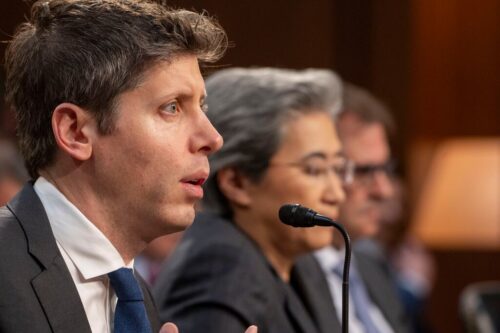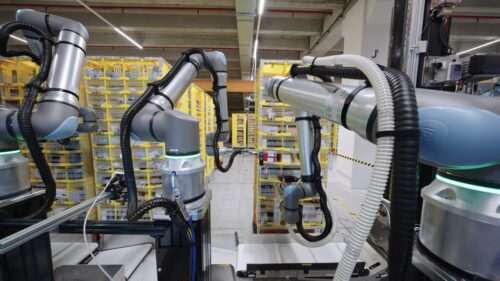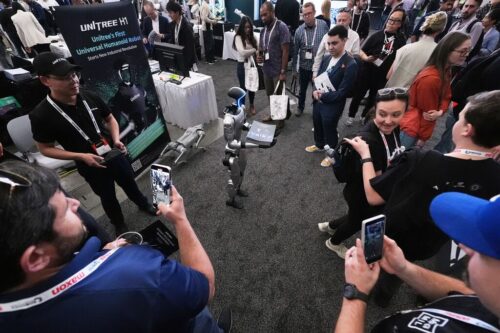In one of his initial public speeches since becoming the first US-born pope last week, Leo XIV raised points that his predecessors have been making for centuries, millennia even, about the importance of faith and caring for the indigent.
Speaking on Saturday to the cardinals who elected him, the new pope also highlighted a concern that drew the attention of the Catholic Church only recently: artificial intelligence.
In explaining why he took the name “Leo,” last used by Pope Leo XIII at the end of the 19th century, Leo XIV spoke of the Industrial Revolution then and the potential of a second revolution in work today caused by AI.
The new pope pointed to a famous encyclical issued by Pope Leo XIII in 1891 called “On Capital and Labor,” which sought greater respect for workers’ rights and unions, limited working hours, and fair wages.
“The discussion is not easy, nor is it void of danger,” the earlier pope wrote, amid the rise of urban factories, railroads, and Gilded Age robber barons. “It is no easy matter to define the relative rights and mutual duties of the rich and of the poor, of capital and of labor.”
Leo XIV said he saw clear parallels to the current AI boom amid the rise of massive data centers, AI bots, and tech billionaires.
“In our own day, the Church offers to everyone the treasury of her social teaching in response to another industrial revolution and to developments in the field of artificial intelligence that pose new challenges for the defense of human dignity, justice, and labor,” the pope said (in a Vatican translation of the speech delivered in Latin).
Leo is only the second pope to explore the implications of AI, though so far, he has focused on the darker aspects.
Starting two years ago, Leo’s predecessor, Pope Francis, repeatedly praised the advance of technology and AI while also warning of the dangers of unchecked use of AI without moral and ethical boundaries.
“We cannot allow algorithms to limit or condition respect for human dignity, or to exclude compassion, mercy, forgiveness, and above all, the hope that people are able to change,” Francis said in a 2023 speech.
Some Massachusetts AI leaders, assembled by University of Massachusetts Boston chancellor Marcelo Suárez-Orozco, went to the Vatican in March for an AI conference hosted by the Pontifical Academy of Social Sciences and Pope Francis.
In making reference to the Gilded Age Industrial Revolution, Leo appears to be more concerned about the potential for AI to allow for the exploitation of workers and harm to society, according to Greg Epstein, Humanist chaplain at Harvard and MIT, who wrote a book last year about technology and religion. Epstein, who fears that technology has become a substitute for religion for many people, welcomed Leo’s involvement.
“The Catholic Church has a mixed record when it comes to moral authority, but some of its best moments in history have been using its force … to push for justice,” Epstein said. “And I think that’s what we need right now.”
AI also raises concerns about devaluing human relationships, which the pope could address as well, said John Pittard, a professor of philosophy at Yale Divinity School.
“I’m very concerned about the degradation and impoverishment of human relationships as we come to increasingly rely on AI and less on other people,” Pittard said. “And obviously, religion and Christianity and Catholicism have a lot to say about that. I would be concerned if he wasn’t tuned into these challenges and issues in a significant way.”
OpenAI CEO Sam Altman and other US tech leaders testify to Congress on AI competition with ChinaAmericans worry AI is coming for these jobsA N.H. police recruit was suspended, then hired, after an ethics tangle over AI use




Comment count: